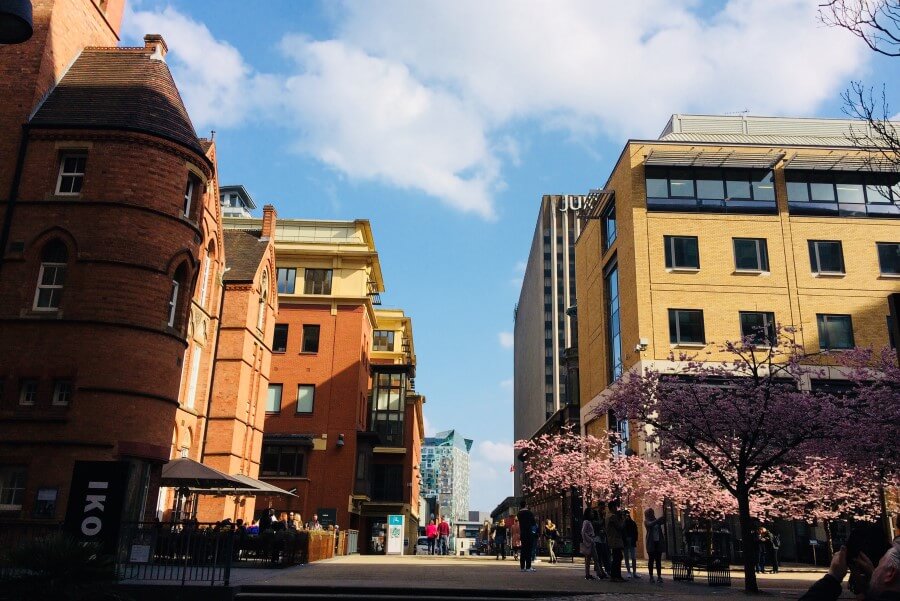
Raj Kandola discusses the impact of Covid-19 on the economy of Birmingham, the resilience and collective resolve shown by local businesses to survive the pandemic, and the opportunities and challenges that lie ahead for the city to continue its economic recovery.
This blog post was produced for inclusion in the Birmingham Economic Review for 2021.
The annual Birmingham Economic Review is produced by City-REDI, University of Birmingham and the Greater Birmingham Chambers of Commerce. It is an in-depth exploration of the economy of England’s second city and a high-quality resource for informing research, policy and investment decisions.
This post is featured in Chapter 1 of the Birmingham Economic Review for 2021, on Birmingham’s economic recovery and resilience following the coronavirus crisis.
Click here to read the Review.
As the economy was plunged into temporary stasis in March 2020, there was little to suggest that eighteen months later the city and the country would still be suffering from the fallout of the Covid-19 pandemic. However, throughout this extraordinary period, firms in Birmingham have continued to demonstrate the unique qualities of resilience and collective resolve which have long been synonymous with the city and its business community. In particular, it’s those formidable characteristics that will create a springboard for a return to economic growth as the successful vaccine rollout continues at pace and national restrictions ease.
There’s no denying the detrimental impact that pandemic has had on the city economy and the manner in which it has exacerbated a number of existing issues which pre-dated the crisis. Unemployment levels, especially amongst 16-24 years, remains stubbornly high. The city’s claimant unemployment rate stood at 14.2% in July which is way above the West Midlands (8.1%) and the UK (6.7%) levels. Research from Centre for Cities High Street Recovery Tracker revealed that Birmingham remains entrenched in the bottom ten of the UK’s largest cities and towns in terms of footfall and spend.
Nevertheless, there seems to be an intangible air of optimism slowly but surely building as take tentative steps on the long road to economic recovery. Data from our latest Quarterly Business Report seems to reflect that sentiment. We saw a notable uplift in domestic demand, a nominal climb in international sales and a welcome upturn in recruitment levels. 66% of businesses expect their turnover to increase over the next 12 months and 60% expect their profit levels to go up over the same period – a level of confidence on a par with pre-pandemic levels.
Perhaps the surge of optimism has been bolstered by the news that prominent organisations such as Goldman Sachs have relocated to the city and anchor institutions such as the BBC, BT Group and the Department for Transport are expanding their presence here. Or perhaps we are forgetting about the building blocks that were in place prior to the onset of Covid-19 which played such an important role in facilitating the city’s economic renaissance over the last ten years. Central to this revival was the arrival HS2 and the wider socio-economic benefits it would unlock for Birmingham and the surrounding areas.
The fact that work continued on the project throughout the pandemic and over 20,000 jobs are now supported by it underline its importance to both the city and the country as a whole. The fact that the project is expected to create over 160,000 jobs in the region throughout the lifetime of the programme also reiterates its significance as a driver of economic growth and productivity.
We shouldn’t also forget that the eyes of the world will be on the city as we host the Commonwealth Games in 2022. The Games offer a fantastic opportunity for the region to drive trade, tourism and investment – all of which will help to foster a longer-term economic recovery and resurgence for the city. All of which means that despite the numerous challenges we still face as we emerge from this devastating crisis, the city is well placed to re-establish itself as a beacon for economic growth both home and abroad.
This blog was written by Raj Kandola, Head of Policy, Greater Birmingham Chambers of Commerce.
Disclaimer:
The views expressed in this analysis post are those of the authors and not necessarily those of City-REDI / WMREDI or the University of Birmingham.
